Kidnapped, abused, humiliated – the Ukrainian children stolen by Russia
Vladimir Putin and, from left, Ukrainian children Serhiy, Bogdan, Serhii, Ksenia and Denis after being rescued from forced Russian deportation (Getty/Save Ukraine)
Anastasiia Motychak did not know why Irina – the person in charge of her camp in Russian-occupied Crimea – had just slapped her across the face; she just knew she missed her mum and wanted to go home to the Ukrainian city of Kherson.
It had been two months since the then 15-year-old had been put on a bus and moved from the then Russian-occupied Kherson, in southern Ukraine, to a two-week “vacation camp” in Yevpatoria, western Crimea. Kherson was no place for a child, the Russian soldiers had warned.
Days later, Ukrainian forces liberated the city. But by then, Anastasiia was 150 miles deeper into occupied territory, sleeping in a room with barred windows.
Living in areas held by different military forces, she and her mother soon struggled to communicate; the cell lines between the two cities had been cut.
Then Irina showed up.
The short-tempered teacher would glare at Anastasiia and swear at the children. None of them knew why.
One January evening, after Anastasiia had returned from a walk – something she was allowed to do – her roommate pulled her into their room and told her Irina was looking for her.
Confused, the teenager poked her head out of her room to see if Irina was near. She was.
“She grabbed me and took me into a room nearby,” the teen recalls. “She started swearing, telling me that I would never return home. She said she was sick of me. She said that if I did anything like this again, she would call the police and send me to the Ural mountains in Russia. Then she closed the door and she slapped me across the face.”
Anastasiia still doesn’t know what she did wrong.

Roughly 20,000 Ukrainian children have been moved to such camps since Russia invaded Ukraine in 2022, according to Ukrainian officials. Nearly a quarter of those who have been taken are orphans or children without parental care.
More than 70 camps for forcibly “re-educating” children have been found, according to the Ukrainian government, including in Belarus, occupied Crimea and even far-east Russia, where the children are three times closer to the United States than Ukraine.
The issue of returning these abducted children to Ukraine is set to be the key issue at a peace summit this weekend in Switzerland, led by President Volodymyr Zelensky. Russia has not been invited.
‘We would be punished’
According to reports from the independent Organisation for Security and Co-operation in Europe (OSCE), the so-called camps where the children are taken are anything but a holiday.
When they enter them, the OSCE wrote in May 2023, the youngsters “find themselves in an entirely pro-Russian environment … exposed to a pro-Russian information campaign often amounting to targeted re-education”.
When Anastasiia arrived in the camp in Yevpatoria, she was put into a small, shared room with several other children from Kherson.
She said the pillows on her bed stank and there were cockroaches everywhere, especially in the food hall. “I felt like I was in prison,” she says. “We had balconies in our room but they had bars on them.”
Anastasiia says she was “constantly monitored” during her time in the camp, only ever permitted to go outside under the watchful eye of one of the camp officials, and added that they were often punished for reasons they did not understand.
“We would be punished but we did not know why,” she says. “We didn’t know why they would not let us go. They refused to answer our questions.
“They told us that they would not get a bus to take us home and that we had to get our parents to come and collect us. They kept on repeating and repeating that.”

The OSCE paper added that “the Russian Federation does not take any steps to actively promote the return of Ukrainian children”, despite this being mandated by the Geneva Convention on the treatment of children during war. Instead, the paper said, “it creates various obstacles for families seeking to get their children back”.
Dmytro Lubinets, Ukraine’s human rights commissioner tasked with negotiating the rescue of Ukrainian children from Russia, told The Independent that Moscow officials do “everything they can to block the return” of these tens of thousands of children.
Moscow has repeatedly denied abducting children and has sought to justify its actions by claiming it was done for the protection of the children. But such denials are dismissed by Lubinets.
“Ever since Russia occupied Crimea and part of Donetsk and Luhansk in 2014, all this time, Russia has deported Ukrainian children and violated the rights of civilians,” he said. “We have then had eight years of discussions [to return the children]. Did we have any concrete results? No.
“The only real way we can stop the deportation of Ukranian children is the liberation of all occupied territories of Ukraine. We have no other way.”
Anastasiia is one of only 388 children to have been rescued, according to Children of War, a portal created to track young deported Ukrainians. Only 2 per cent of those taken by Russia have returned, largely because their hometowns were liberated from Russian rule.
Three months after Ukraine freed Kherson, Anastasiia’s mother was able to contact Save Ukraine, a non-profit organisation that helps families travel through Russia to recover their relations. It has helped rescue more than 60 per cent of the children freed so far.
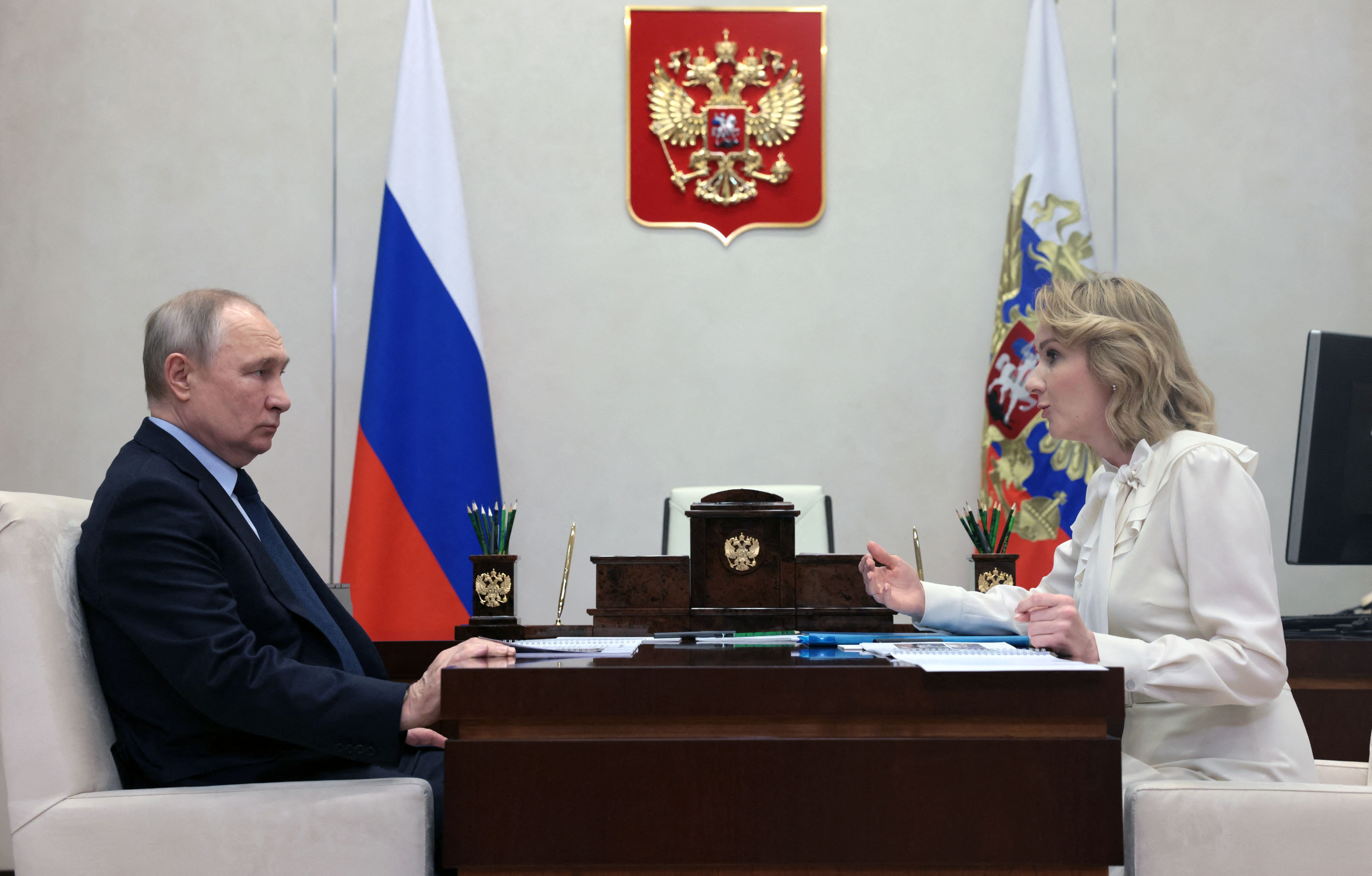
After a 15-day circuitous route around the front line in Ukraine, through Poland, Belarus and southwestern Russia, Anastasiia was reunited with her mum four months after she was taken. That was February 2023.
A month later, the International Criminal Court (ICC) issued arrest warrants against Russian president Vladimir Putin and the Kremlin’s commissioner for children’s rights, Maria Lvova-Belova, who has bragged about “rescuing” a Ukrainian child of her own, then 17-year-old Filip Holovnya.
Prosecutors at the ICC said they had “reasonable grounds” to believe she bore criminal responsibility for acting “directly, jointly with others and/or through others” to deport Ukrainian children to Russia. Putin, they added, has command responsibility. Russia decried the arrest warrants as politically motivated.
Kateryna Rashevska, a legal expert at the Regional Centre for Human Rights in Kyiv who has been advising the United Nations on the camps where children are being held, tells The Independent that the forced deportations are “a sign of Russia’s intent to exterminate our nationhood”.
“For us, for Ukrainians, it is a direct threat to our identity,” she says. “Russia wants to turn our children into enemies of Ukraine.”
‘Why wouldn’t you go?’
The Independent has spoken to five Ukrainian children recovered from Russia, ranging from 12 to 17 years old when they were taken, about their experiences in these “vacation camps”.
All stayed for at least four months, like Anastasiia; at least three stayed for more than eight, well after the ICC issued its arrest warrants in March last year. They were all rescued by Save Ukraine.
Liza Batsura, 16, says she remembers the moment a Russian official walked into her classroom in Henichesk No 27 Vocational School, near the Crimean peninsula.
Russian authorities moved her from Kherson to Crimea in September 2022, when she was 14. Her school director said he would put her in the basement if she refused. She would not be rescued until May the following year, by her estranged mother, Oksana Halkina.
“The teacher told us someone was coming,” Liza says. “Then we were taken into a room with one big table and chairs, and this woman walked in.
“She said it was not safe in Henichesk because of the war. She said it would be better for us in Russia, where we would have all these advantages.”
The official, flanked by official-looking men, allegedly offered each child 100,000 rubles (£893) “to move to any Russian city we wanted”, according to Liza.
By that point, Liza hadn’t spoken to her mother in more than half a year. The pair had a difficult relationship, so Liza had been living in a children’s home in Kherson prior to being taken by Russian authorities. Her mum was only told where she had been taken a week after she left.
“Some thoughts crossed my mind. What if this is a great opportunity for me?” Liza says. “Some other kids pressed me morally, asking: ‘Why wouldn’t you go?’”
Liza says six or seven children in her classroom took the opportunity – but she declined.
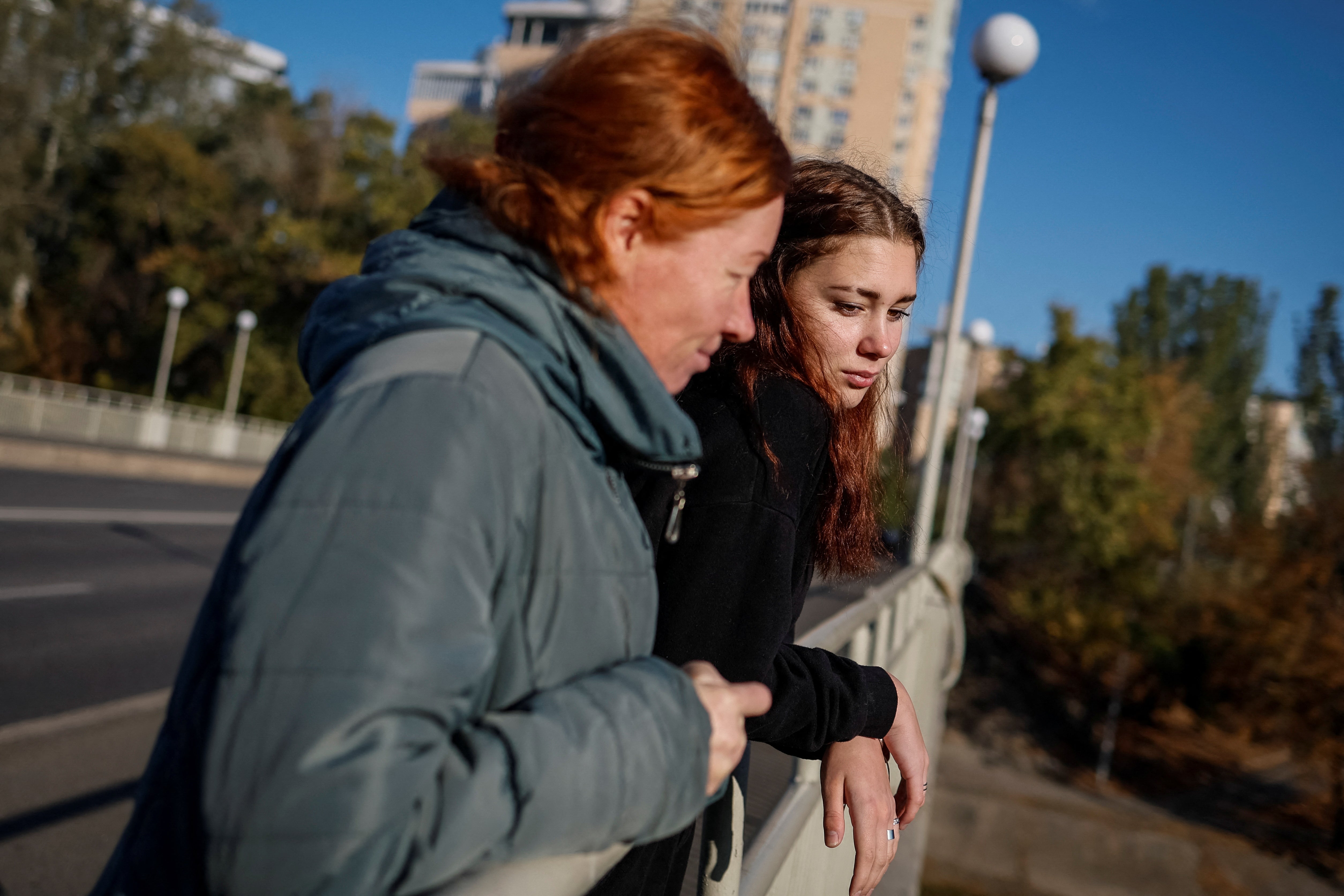
“In the end, I thought, I am closer to Ukraine than I am to Russia,” she says. “The whole atmosphere of Russian propaganda was very annoying as well.”
One of those that accepted the offer, Zorik Ibrian, 17, has stayed in Henichesk, where he infrequently messages Liza to swear at her for supporting Ukraine. He was orphaned a year before Russia’s full-scale invasion.
‘I just wanted it to be over’
For Bogdan Shvetzov, it was the daily routine of singing the Russian national anthem that he hated the most.
Russian authorities moved him from Kherson to Crimea in October 2022, when he was 12. Like Anastasiia, Bogdan’s mother had been told it was not safe for him in Kherson. He would not be rescued until April the following year.
The young boy was transferred to the camp through the Black Sea, via boat. He said he wasn’t scared while he was travelling there because it was his first time on a boat.
But when they reached Yevpatoria, which is where all the children from Kherson were first taken, he was separated from his classmates, put on a coach and taken to a camp nearby, where he was forced to partake in a never-ending routine built around Russian propaganda.
“They made us sing the national anthem first thing every morning before physical exercise,” he says, adding that PE started at 8.30am every day, after which they would have mandatory Russian classes and, later, arts and crafts.
“We were made to stand in two rows. The care-givers would walk back and forth between us to make sure we were singing. If we weren’t, they would take you to the director of the camp. There, if you refused to sing, you were told that your parents would pay a fee.”
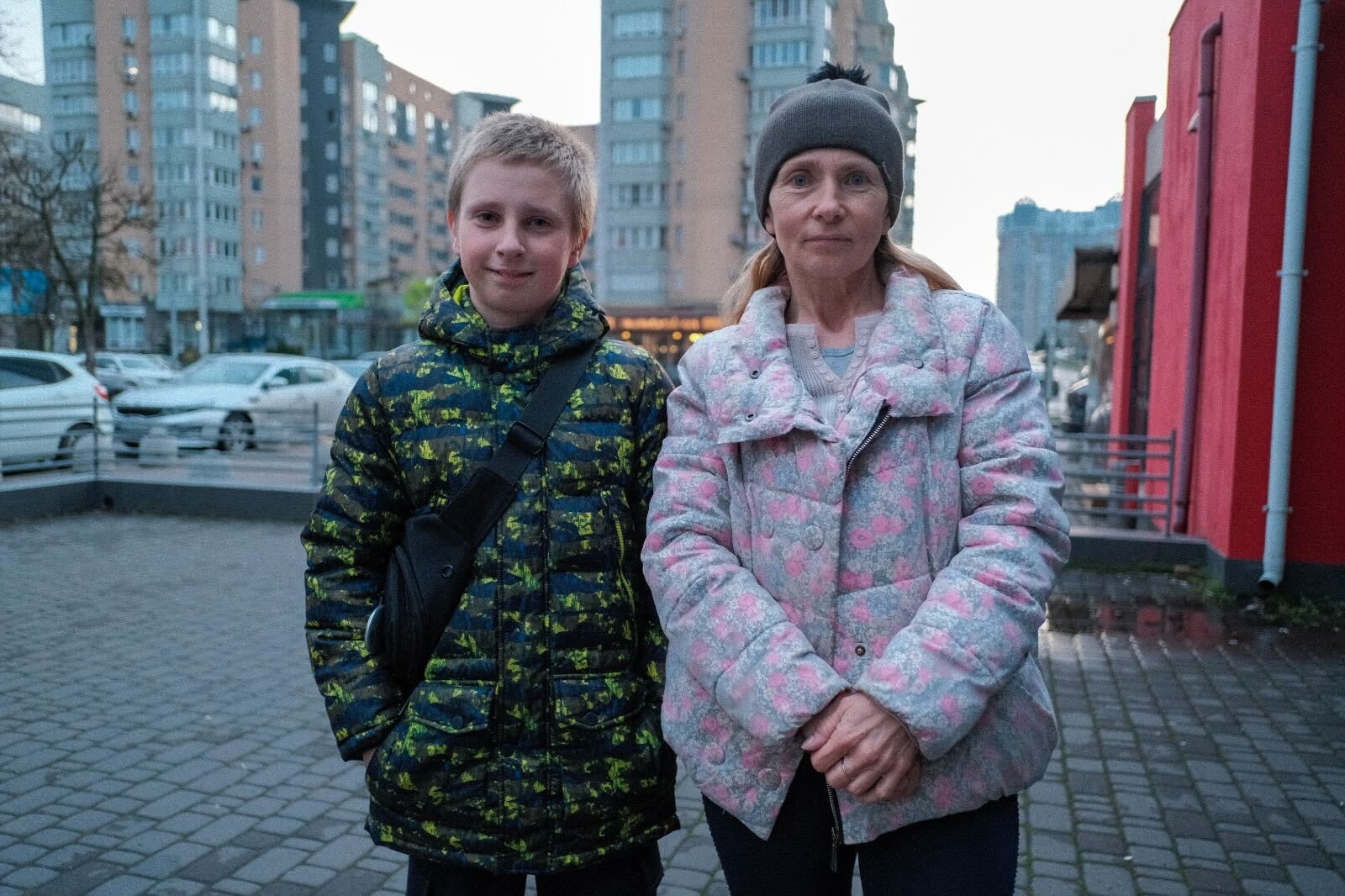
He says he didn’t know the anthem so he would pretend that he was singing by occasionally opening his mouth. Eventually, he picked up some of the words, which he would sing randomly.
“It became more annoying each day. I just wanted it to be over,” he adds. “But I was afraid to say or do something in case it created a bigger problem. I saw some children get taken.”
During a recent interview, the Russian children’s commissioner, Lvova-Belova, described the daily ritual of singing the national anthem as an “important part of identification with the Russian Federation”, adding that “there is nothing wrong with that”.
She did not address Bogdan’s claims that children were threatened if they did not sing – nor did Bogdan ever find out whether children were punished.
During her first month away from home, while at camp “Druzhba”, which means “friendship” in Russian, Liza describes the moment the head of the camp’s security found a Ukrainian flag in one of the girl's bags.
“He gathered us around and torched the flag in front of us. Then he said: ‘Look, this is how your country will burn’,” she says.
Liza adds that he would regularly call them “ukropy” and “khokhol”, which are derogatory Russian terms intended to describe Ukrainians as a lesser people.
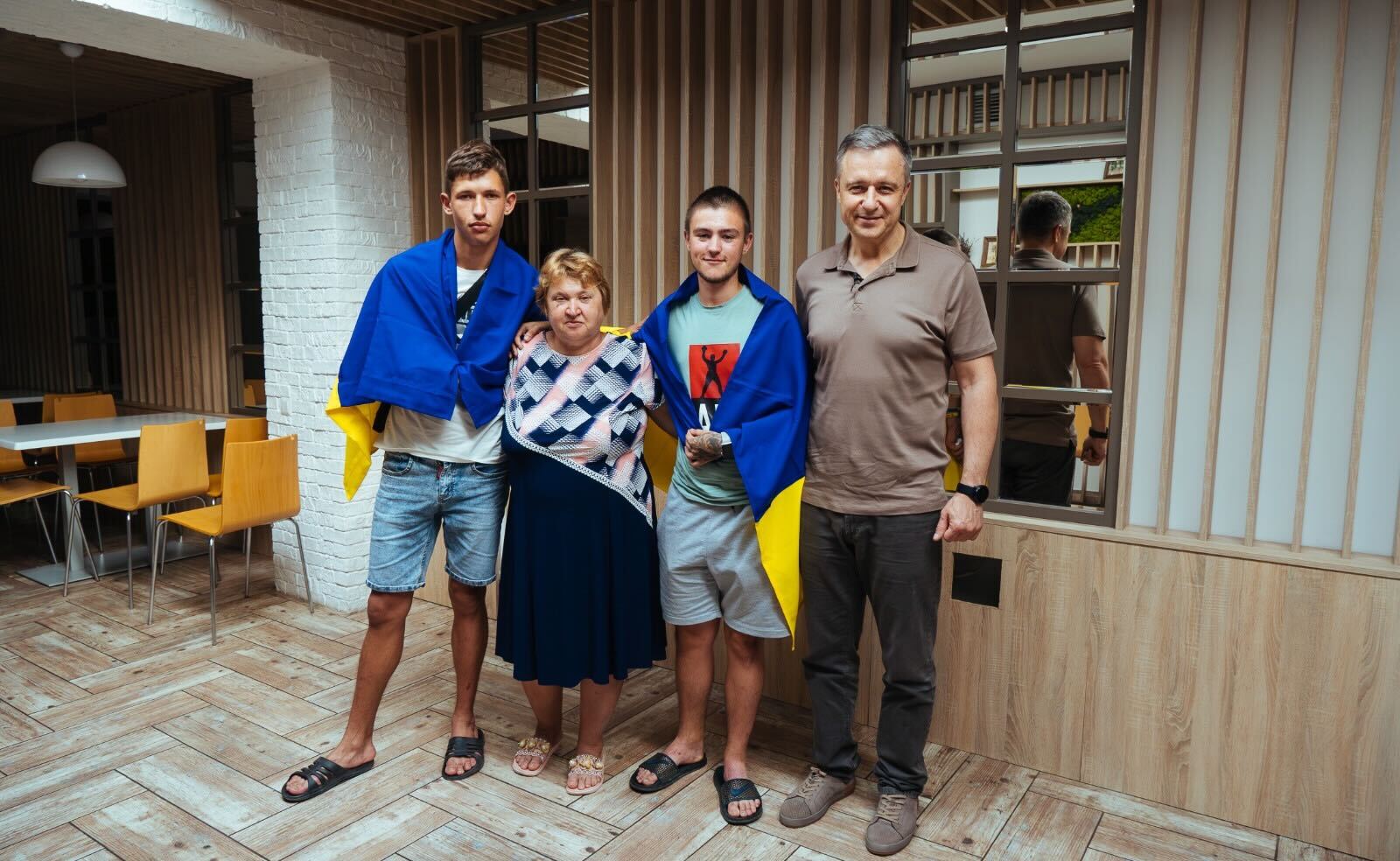
Denis Berezhnyi, now 18, says he will never forget the day he was moved to occupied Crimea.
He says Russian authorities tricked him into moving from Kherson when he was 17, on 7 October 2022. He had been staying in a college away from home.
“I did not want to go but my teacher told me my parents had signed the papers,” he says. “I found out later that that was a lie.” He would not return until June 2023.
During those nine months, his deaf and mute parents, for whom he was the primary care-giver, relied on their neighbours and Denis’s 13-year-old brother.
“I was worrying a lot,” Denis says, “because I did not know what was happening with my parents and my brother. I did not know if they were OK.”
Like Bogdan, it was the monotony of the camp that frustrated him. As one of the oldest to be taken, he was not permitted to partake in the classes during the day.
“We didn’t really do anything in the camp,” Denis says. “But we were not allowed to leave. I felt like I was in a prison.”
Two months in, the authorities moved him to a technical college in Kerch, a few miles from mainland Russia, where he was forced to take classes he had not chosen.
Denis says he remembers the day he stepped back into liberated Ukrainian territory as clearly as the day he was taken from Kherson.
He managed to contact Save Ukraine after his friends told him the organisation could help rescue him. His friend Serhiy’s mother picked them both up.
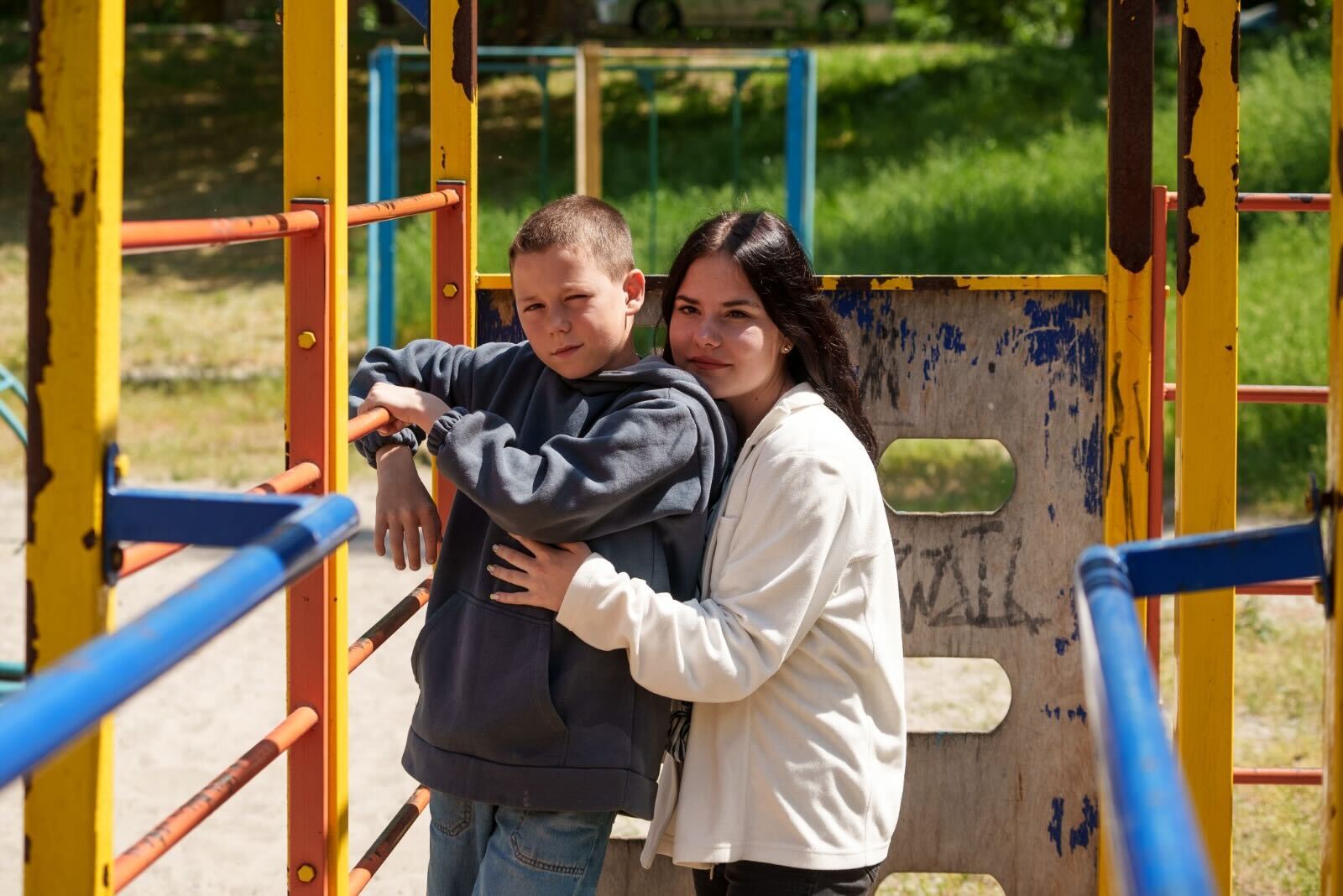
“It took us five days to get back,” he says, mentioning a route similar to the one taken by Anastasiia’s mother but reversed.
“I slept for maybe two hours the whole time. I was exhausted when we got back.”
As he drove over the border from Poland, he says he shouted “Slava Ukraini”, which means “Glory to Ukraine”. It is a phrase that has become symbolic of Ukraine’s stand against Russia.
“I was so happy when we crossed over because I knew I wouldn’t have to see any more Russian flags, or have to sing the Russian anthem,” he says. “I was relieved. I finally felt at ease.”
‘It was a time of constant fear’
But for Ksenia Koldina, 19, her return from a Russian re-education camp was not the end of her nightmare.
The aspiring journalist had been living with her younger brother, Serhii Koldin, and a Ukrainian foster family in Vovchansk, Kharkiv Oblast – roughly six miles from the border with Russia – ever since their parents lost custody of them two years earlier. That town has since been partially occupied by Russian forces after they launched a cross-border attack in May this year.
In August 2022, six months after Russia initially occupied Vovchansk, Ksenia’s foster family sent her across the border to the town of Shebekino in Belgorod. They had been swayed by Russian propaganda that suggested children would be safer across the border. She was 17 at the time. They sent her brother to a camp 620 miles away, to the town of Gelendzhik in the Krasnodar Krai region, southern Russia. He was just 11.
Unlike the four others interviewed, no one came to collect Ksenia or her brother. Any hopes of their return rested on Ksenia alone.
“It was a time of constant fear,” she says, noticeably less keen on speaking about her experiences than the other interviewees. “I didn’t know what was going to happen the next day. I was completely in the dark.”

She adds: “I thought I was going to have to stay in Russia forever. I thought I would have to take on a Russian passport.”
Having turned 18, she managed to escape after her friends helped her connect with social services in Kharkiv. From there, she learnt about Save Ukraine, who helped her locate her brother. The siblings had not seen each other for nine months and had only spoken infrequently.
When she tried to organise picking him up, it was not only his new foster family that was uncooperative. Serhii stopped taking her calls. When she arrived, he backed away as she tried to hug him.
Ksenia said Serhii appeared confused and anxious. “He started saying, ‘It’s better for me in Russia. I want to stay’,” Ksenia recounted to the New York Times in a separate interview.
She later found out that Serhii had been regularly told that all Ukrainians were Nazis and “khokhols”, the same insult used in the Crimean camps.
Mykola Kuleba, chief executive of Save Ukraine, tells The Independent the indoctrination becomes more difficult to undo the younger someone is when they are subjected to “re-education”.
The former children’s ombudsman for Ukraine from 2014 to 2021 has been instrumental in recovering those taken. He also personally took in Ksenia and Serhii after they returned to Ukraine.
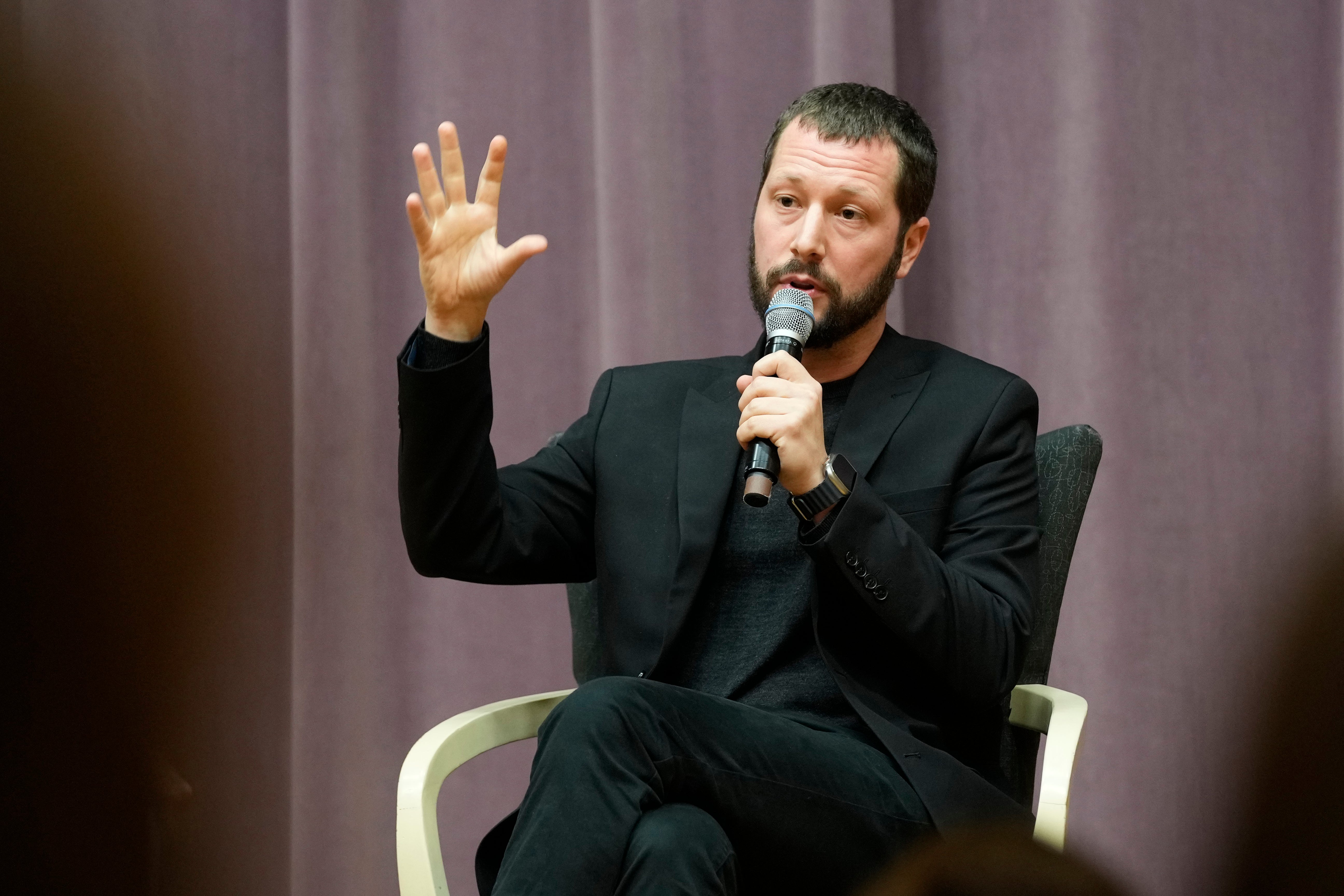
“Ten-year-olds don’t believe they have been kidnapped,” he says. “They believe they were saved.
“The Russians convert everything. They change reality. That’s why so many people have been brainwashed. That’s why it is very hard to communicate with them. It gets worse every day.”
‘Impossible to return them’
That Anastasiia, Liza, Bogdan and Denis were able to tell their stories hinges largely on the fact that Kherson, where the first four are from, was liberated.
Their parents and friends were able to coordinate with Save Ukraine and organise for someone to retrieve them.
In Knsenia’s case, which is nonetheless a rare one, that she was living close to the Ukrainian border made it easier for her to stay in contact with friends in Kharkiv.
But there is evidence to suggest that many more children have been displaced from cities well behind the Russian front line. Lvova-Belova has bragged about “rescuing” more than 740,000 Ukrainain children.
Mstyslav Chernov, one of the last journalists to leave the southern Ukrainian city of Mariupol before it was occupied, and who has been investigating war crimes in the city ever since, said the abduction of children from Mariupol was one of his greatest concerns.
It has been more than a hundred miles behind the Russian front line since May 2022. And there are many more cities like it.
Kuleba, without providing evidence, suggests that if you include occupied regions, as well as all those children taken since the annexation of Crimea and invasion of the eastern regions of Donetsk and Luhansk in 2014, the number of children Russia has displaced would rise into the millions.
“There are maybe five million Ukrianians in Russia who have been brainwashed,” he claims.
Then there are the really unlucky ones: those who may never be counted, who may never know they were taken, who may never know they were – they are – Ukrainian. They may never even know their real name.
“There is a reason we have no cases of returning children under the age of six,” Kuleba says.
“It’s because they do not know that they have been kidnapped, or from what area they were taken. They are growing up believing they have always been Russian.”
As his face flushes with a mix of resignation and then anger, Kuleba adds: “I think it will be impossible to return them.”
